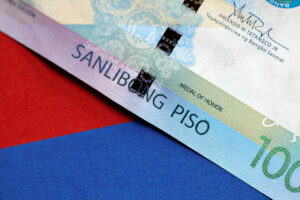Maharlika fund’s rules finalized, says Marcos
THE PHILIPPINE government has finalized the implementing rules and regulations (IRR) for its first-ever sovereign wealth fund, less than a month after it was suspended to supposedly improve the fund’s organizational structure. “The IRR of the Maharlika Investment Fund (MIF) has been finalized. Upon approval, we’ll swiftly establish the corporate structure, getting the MIF up […]

THE PHILIPPINE government has finalized the implementing rules and regulations (IRR) for its first-ever sovereign wealth fund, less than a month after it was suspended to supposedly improve the fund’s organizational structure.
“The IRR of the Maharlika Investment Fund (MIF) has been finalized. Upon approval, we’ll swiftly establish the corporate structure, getting the MIF up and running,” President Ferdinand R. Marcos, Jr. said in a Palace statement on Monday.
The Palace did not provide other details on the changes to the IRR.
In an order dated Oct. 12, Mr. Marcos ordered the suspension of the IRR of the law that created the MIF. The letter was addressed to the Bureau of the Treasury as well as the heads of the Land Bank of the Philippines (LANDBANK) and the Development Bank of the Philippines (DBP).
The suspension came after the LANDBANK and DBP had already remitted P50 billion and P25 billion, respectively, for the initial funding of the sovereign wealth fund as required under the law.
Executive Secretary Lucas P. Bersamin had said Mr. Marcos had wanted to carefully study the IRR “to ensure that the purpose of the fund will be realized for the country’s development with safeguards in place for transparency and accountability.”
Concerns over the financial stability of the two state banks swirled after they sought regulatory relief from the Bangko Sentral ng Pilipinas’ capitalization requirements after remitting their contributions.
“We would like to see provisions which broaden transparency and accountability in managing the fund, while allowing fund managers the agility and flexibility to maximize fund return,” public investment analyst Terry L. Ridon said in a Facebook Messenger chat.
Mr. Ridon said Malacañang should have included “a little bit more details” on the exact changes in the IRR and avoid letting the public second-guess the developing plans regarding the fund “considering that it’s a flagship economic program.”
“It is critical for us to see who gets to sit in the inaugural MIF board because that would spell this administration’s commitment to effective stewardship of our resources and MIF’s promised contribution to national development,” Emy Ruth Gianan, who teaches economics at the Polytechnic University of the Philippines, said via Messenger.
She said it is notable that the MIF “remains active in the public eye.”
Economists earlier told BusinessWorld that the suspension may be aimed at allowing the President to have greater say on the choice of the Maharlika Investment Corp.’s top executives.
They also flagged the original IRR’s lack of guidance on how foreign or local private investors can participate or invest in the fund.
Despite the suspension of the rules, Mr. Marcos last month vowed the MIF will be operational before the end of the year.
“We are still committed to having it operational before the end of the year,” he said in his departure speech before leaving Manila for a meeting between Southeast Asian and Gulf leaders in Saudi Arabia in October.
Finance Secretary Benjamin E. Diokno had pitched the investment opportunities in the MIF during a meeting with top Saudi business leaders in October.
“To achieve this, Maharlika aims to attract capital from both domestic and global equity investors, including large funds here in the Middle East seeking to diversify its portfolio in fast-growing emerging markets like the Philippines,” Mr. Diokno was quoted as saying in a statement last month.
Investments in the MIF would be used to ramp up the implementation of the country’s high-impact infrastructure flagship projects estimated to be worth around $153 billion.
“The fund also presents exciting opportunities for green and blue investments, ESG (environmental, social, and corporate governance) linked fixed-income instruments, and cutting-edge technologies with the advent of artificial intelligence and cloud computing,” he said. — Kyle Aristophere T. Atienza













